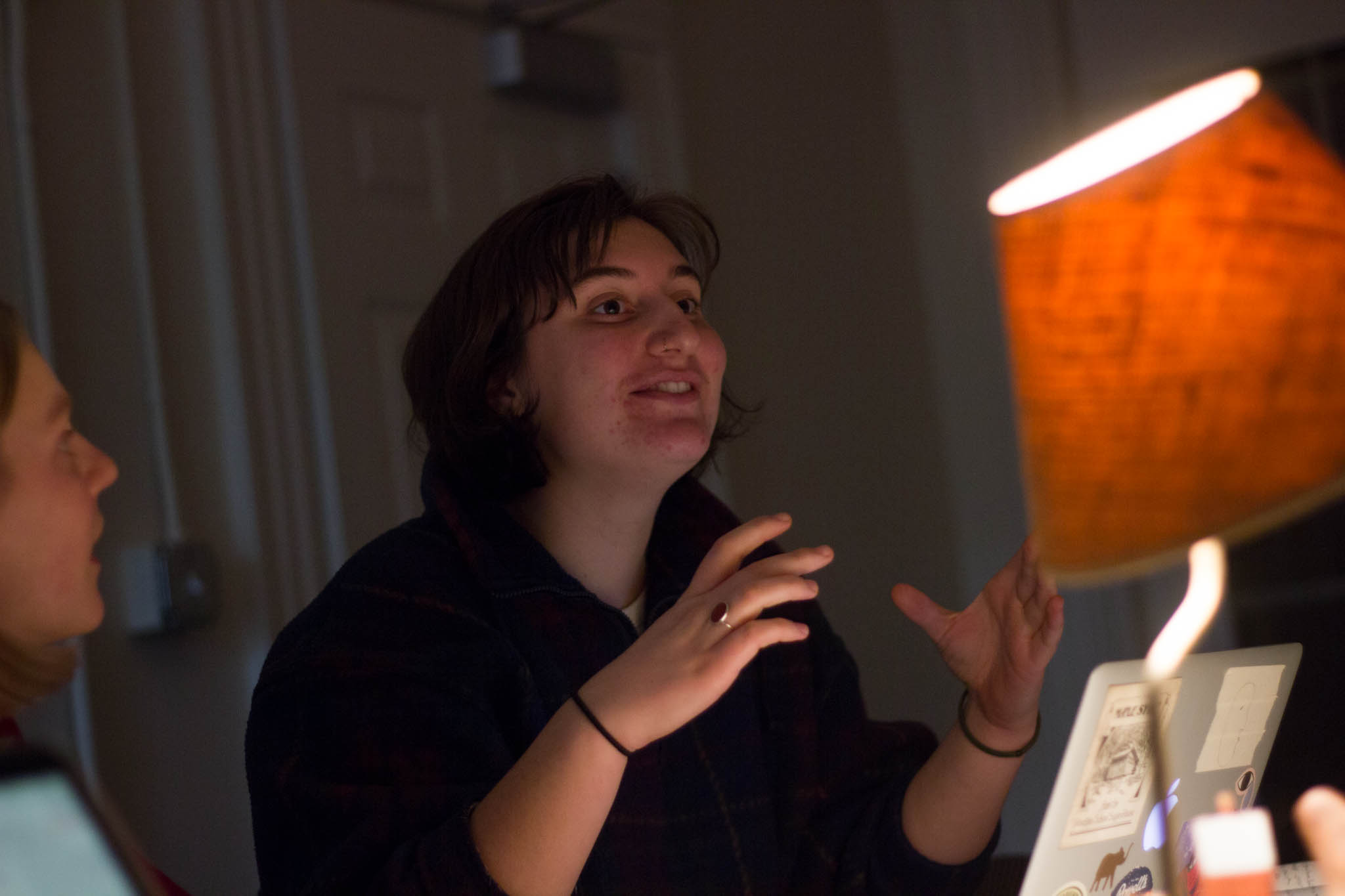Historic house fosters new writing
November 30, 2018
 Reuben Schafir
Reuben SchafirThere is no single leader of the Stowe Writers House, a new writing collective on Bowdoin’s campus. It is a purely collaborative space, devoid of hierarchy, deadlines and judgement.
Loosely modelled off of the Kelly Writers House at the University of Pennsylvania, the Stowe Writers House group was conceived last year through a collaboration between students and Professor of Africana Studies and English Tess Chakkalakal. The choice of this space is important to both Chakkalakal and the students involved, as it is the same residence in which it’s namesake, the famous abolitionist, Harriet Beecher Stowe, is said to have composed parts of “Uncle Tom’s Cabin.”
Aida Muratoglu ’21, Franny Weed ’21, Aisha Rickford ’20 and Bridget Hoke ’20 took over the project this fall.
“All of us found ourselves frustrated that there isn’t a space for students to come together and be writers on campus,” said Muratoglu.
But, the four clarified, they don’t want to be thought of as the leaders of the group. The house is a safe space where those interested in creative writing can go to write and collaborate. They are simply initiating the house’s writing-based programming this year with the hopes that in future years other students and writing groups will begin to utilize the space for their own programs and projects.
The Stowe Writer’s House Instagram account describes the group as non-academic and non-judgmental.
“I think that it’s hard to do creative writing on this campus in a place that isn’t where you’re also doing work or learning in some way or in the library or in Smith [Union] or in your dorm,” said Weed. “This is a problem for a lot of the people that we’ve been working with, who say they can’t write creatively in these places.”
She went on to describe how writing can be a fantastic way to destress from academic and extracurricular experiences and how the nonjudgmental aspect of the group makes the Stowe Writer’s House a place where students can come to get shelter from the stresses of academic judgment.
“It can be really positive to create something that isn’t being criticized by other people,” Weed said.
The group currently hosts open writing hours on Wednesdays from 7 to 8 p.m .and Fridays from 5 to 6 p.m. Wednesdays are a free writing period, while on Fridays writers are given a prompt. The group then workshops these pieces together, though the degree to which students share is entirely up to them. The goal of these hours, explained Weed, is to block out a chunk of time from students’ busy schedules to come, write and collaborate with fellow writers. Additionally, the group has hosted a day-long retreat and is holding a storytelling hour this Saturday at 7:30 p.m.
“We hope that the house becomes a home for other writers’ groups on campus, such as the Poetry Society or the Quill,” said Muratoglu.
Muratoglu added that she hopes that having this collaborative writing space on campus will encourage more writing groups to form. Weed, too, emphasized how vital it is that the collective remains connected to many writing groups, so that the nonjudgmental group mentality of the Stowe Writers House remains intact.
To ensure the collective’s longevity, these students are currently drafting a sustainable leadership model that will establish quotas for members of each grade to fill positions that will later become necessary. On top of this, the group will continue to work with faculty advisors who oversee larger-scale programming. They currently meet informally with Chakkalakal and Director of Writing and Rhetoric Meredith McCarroll for these larger scale projects. They are also sponsored by the Writing and Rhetoric Program.
“Everyone is a writer, and writing should never be a solitary activity,” said Muratoglu. “Regardless of writing ability or level of interest in creative writing, the Stowe Writers House will welcome everyone, free of judgment.”
Comments
Before submitting a comment, please review our comment policy. Some key points from the policy:
- No hate speech, profanity, disrespectful or threatening comments.
- No personal attacks on reporters.
- Comments must be under 200 words.
- You are strongly encouraged to use a real name or identifier ("Class of '92").
- Any comments made with an email address that does not belong to you will get removed.

This is fantastic! I’m so glad there is a place for Bowdoin writers to go besides the Orient House, and that its philosophy is creatively self-directed with the option for critical collaboration. Nice work students and Prof Chakkalakal